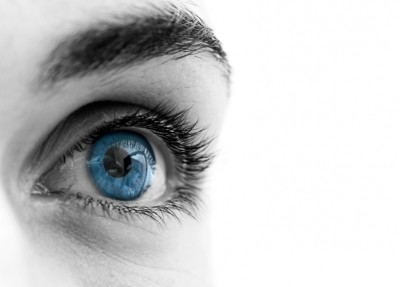Resveratrol may boost eye health: Study
According to findings published in the American Journal of Pathology, resveratrol could reverse the abnormal formation of blood vessels in the retina of mice subjected to a laser treatment.
Scientists from Washington University School of Medicine in St. Louis identified a pathway called the eukaryotic elongation factor-2 kinase (eEF2) regulated pathway, which they proposed as being responsible for the compound's protective effects.
"We have identified a novel pathway,” said lead researcher, Rajendra Apte, MD, PhD. "And we believe the pathway may be involved both in age-related eye disease and in other diseases where angiogenesis plays a destructive role."
Apte and his co-workers note that this was a surprise the anti-ageing potential of resveratrol was proposed to occur via a different pathway.
“A great deal of research has identified resveratrol as an anti-aging compound, and given our interest in age-related eye disease, we wanted to find out whether there was a link,” said Apte. “There were reports on resveratrol's effects on blood vessels in other parts of the body, but there was no evidence that it had any effects within the eye,” he added.
The promise of long life
Resveratrol, a powerful polyphenol and anti-fungal chemical, is often touted as the bioactive compound in grapes and red wine, and has particularly been associated with the so-called 'French Paradox'. The phrase, coined in 1992 by Dr Serge Renaud from Bordeaux University, describes the low incidence of heart disease and obesity among the French, despite their relatively high-fat diet and levels of wine consumption.
Interest in the compound exploded in 2003 when research from David Sinclair and his team from Harvard reported that resveratrol was able to increase the lifespan of yeast cells. The research, published in Nature, was greeted with international media fanfare and ignited flames of hope for an anti-ageing pill.
According to Sinclair’s findings, resveratrol could activate a gene called sirtuin1 (Sirt1 – the yeast equivalent was Sir2), which is also activated during calorie restriction in various species, including monkeys.
Since then studies in nematode worms, fruit flies, fish, and mice have linked resveratrol to longer lives. Other studies with only resveratrol have reported anti-cancer effects, anti-inflammatory effects, cardiovascular benefits, anti-diabetes potential, energy endurance enhancement, and protection against Alzheimer’s.
Study details
The new study linked resveratrol was not related to sirtuins, however, said the researchers. For their study that exposed mouse retinas to a laser treatment that initiated blood vessel formation, or angiogenesis. When resveratrol was fed to the mice, however, the researchers observed that angiogenesis was inhibited and that abnormal blood vessels were eliminated.
The effects were identified as occurring via the eEF2 pathway.
Apte stressed that the animal model of macular degeneration they used is not the same as the human version of the disease, Furthermore, the mice received large resveratrol doses, he said, much more than would be found in several bottles of red wine. If resveratrol is to be effective in people, said Apte, it would need to be given in pill form because of the high doses required.
Eyes on the potential
The researchers note that the findings could have potential for both age-related macular degeneration (AMD) and diabetic retinopathy. AMD is a degenerative retinal disease that causes central vision loss and leaves only peripheral vision, and the leading cause of legal blindness for people over 55 years of age in the Western world, according to AMD Alliance International.
According to the National Institute of Health, between 40 and 45 percent of Americans diagnosed with diabetes already have some stage of diabetic retinopathy, a major cause of blindness in people with diabetes and is one of the most feared diabetic complications.
Source: American Journal of Pathology
July 2010, Volume 177, Pages 481-492, doi: 10.2353/ajpath.2010.090836
“Resveratrol regulates pathologic angiogenesis by a eukaryotic elongation factor-2 kinase-regulated pathway”
Authors: A.A. Khan, D.S. Dace, A.G. Ryazanov, J. Kelly, R.S. Apte














